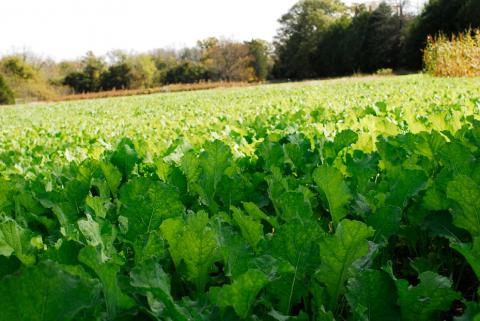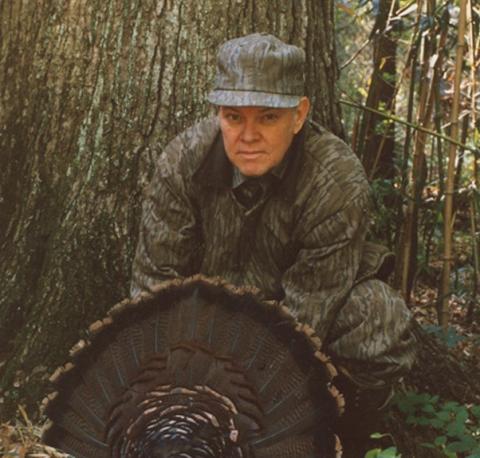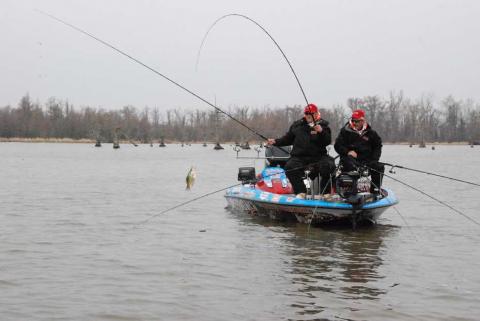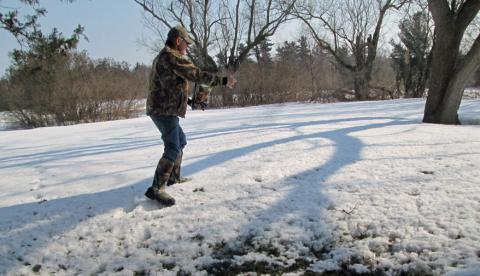Bob Humphrey | Originally published in GameKeepers: Farming for Wildlife Magazine. To subscribe, click here.
Guys, and some gals, are drawn inexorably to machinery. The attraction, if you’ll pardon the pun is magnetic. Few among us don’t relish the idea of running a piece heavy equipment like a tractor, dozer or mower, unless perhaps it’s our regular occupation. But before you run out to the “back 40” to put in a food plot, you should be aware that machine-related injuries are ranked second after motor vehicle-related injuries among the leading causes of occupational injury fatalities…and that’s among folks who do it for a living. That places weekend warriors and hobbyists like most of us at an even greater potential risk for an injury. Fortunately, you can significantly reduce the risks involved by having the proper knowledge and following the correct procedures.
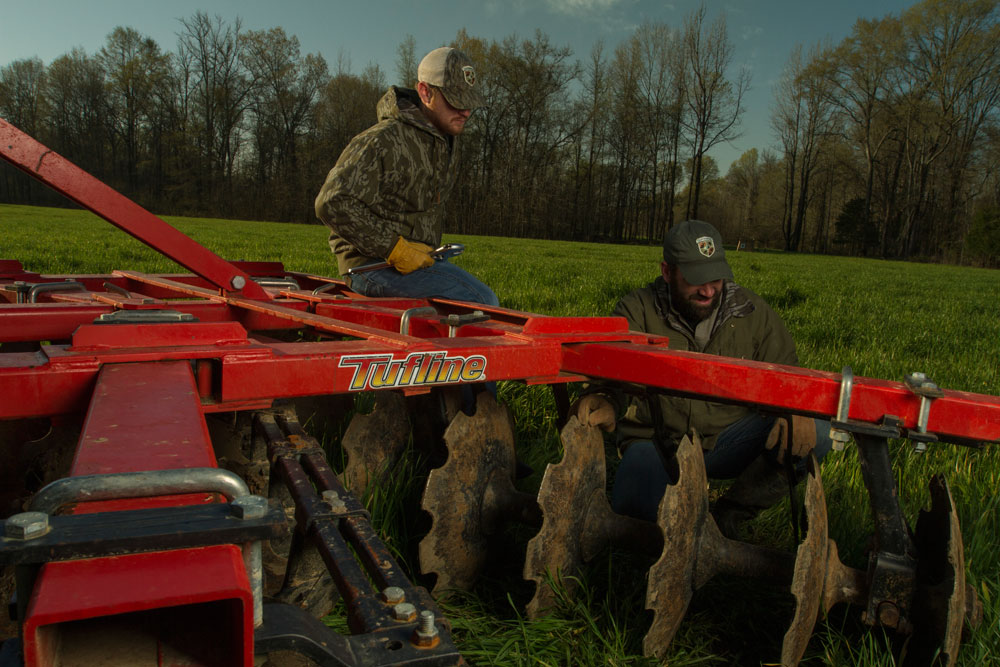
Inspection
Before you begin any job you should inspect your equipment and the site for potential hazards. This is especially true for new projects, but also applies to ongoing work. Before you start, walk the site or ride it in an ATV to look for possible danger like boulders, tree limbs, sink holes, power lines or buried fencing, just to name a few. And do it again when you return the next day, things can change even overnight. High winds can knock down branches. Heavy rains could wash out a bank.
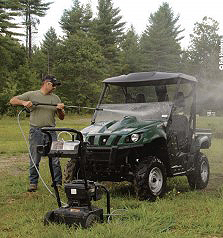
reduce the probability of
breakdown or accidents while
operating.
Next, inspect your equipment. Check all the fasteners, fittings, pins, nuts and bolts for tightness. Constant vibration or impact can loosen or break fixed and moving parts. Check hydraulic and fluid lines for leaks. Hopefully you’ll never experience it, but unfortunately there are certain unscrupulous people in the world so there’s the possibility of vandalism.
Keep all guards, shields and other safety devices in place. They may seem like a hassle, possibly slowing down your work by several minutes, but those few extra minutes are small price to pay to keep you from spending the rest of your life in a wheelchair or missing digits or limbs. Heat shields will also prevent burns and fires, protecting you, your equipment and possibly your property.
According to the National Safety Council, rollover is the deadliest cause of injury among farm workers. Make sure your machinery has a roll-over protective structure. If it doesn’t, add one. The same goes for seat belt.
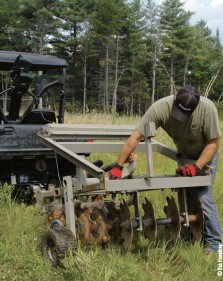
breaks to rest and inspect your
equipment.
Personal Equipment - Safety Equipment
Eye Protection - The list of things that could injure your eyes runs the gamut from flying objects like dust and dirt on a windy day to rocks and sticks while mowing. Low-hanging branches along a field edge, even the sun are all potential Always wear proper eye protection, and that means safety glass, not just your regular prescription lenses or favorite designer sunglasses.
Hearing Protection - Heavy equipment is loud, and prolonged exposure to it can cause temporary or permanent hearing loss. When all the work is done you’ll need your hearing to discern a distant gobble or the nearly silent approach of a big buck.
Proper Apparel - It may not be necessary in all circumstances, but a hard hat is a good idea. Leather gloves will protect your hands from sharp objects like frayed cable, disk and mower blades. Long pants and long-sleeved shirts will protect you from brush, burns from hot equipment or fluids and from the harmful rays of the sun.
Behavior
According to Texas State University, most farm accidents are caused by tired, stressed, rushed, distracted or incompetent operators.
Haste makes waste - Take your time and do it right. Adjust equipment speed to suit operating conditions such as when turning, crossing slopes or driving on rough, slick or muddy surfaces. And take breaks as necessary.
Stay sober - Avoid drugs or alcohol, including prescription drugs. We all joke about the warnings on prescription medication advising not to operate heavy equipment while taking them, but when you’re actually operating heavy machinery, it’s no joke. Anything that slows your reflexes or dulls your senses represents a potential safety hazard. If you’re feeling sick and need medication, take a day off or get someone else to run the equipment while you supervise. And save the libations for after the job is done.
Speaking of liquid refreshment, you should try to stay hydrated. Working all day in the hot sun, even just sitting on a tractor can dehydrate you. Drink water or sports drinks intermittently. In fact, it’s a good idea to drink both, alternately. Too much sugar is not good, and if you do get dehydrated, sports drinks will restore your electrolytes faster.
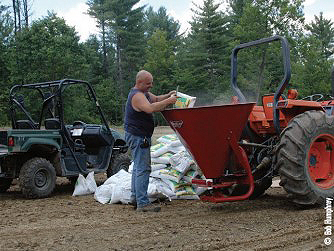
parts have stopped before working on equipment
or filling seeders/spreaders.
Operation
Once you and your equipment are ready to go, you still need to keep safety foremost in your mind at all times.
Don’t bypass-start your equipment. Use procedures and devices described in the operator’s manual, which you all should have read by now. Bypass starting could cause injury or damage to you or your equipment.
Ride safely - most machinery has one seat. That means one passenger or driver. Don’t carry extra passengers on fenders, decks, beds or buckets.
Be aware - always be alert for others on the site. Being struck by heavy equipment is the major cause of death or injury for workers on foot. Keep non-essential workers, especially children away from the work area.
Stop to fix/inspect - make sure the engine and all moving parts have stopped before servicing, adjusting, cleaning or unclogging equipment. And allow the engine to cool before refueling or re-filling hydraulic fluid.
Training
If you’ve never had the proper training to operate heavy equipment you should consider it. Training is mandatory to get to drive a car or hunt, the latter of which is considerably safer than operating machinery. Check with your local extension service or community college for classes. At the very least, get some help and advice from more experienced operators. Inspect and maintain your equipment. Wear the proper safety equipment, follow proper procedures and you’ll increase the odds of being able to enjoy the fruits of your labor when the work is done.

















